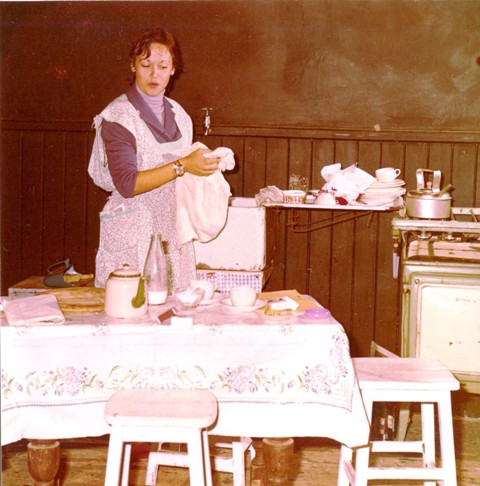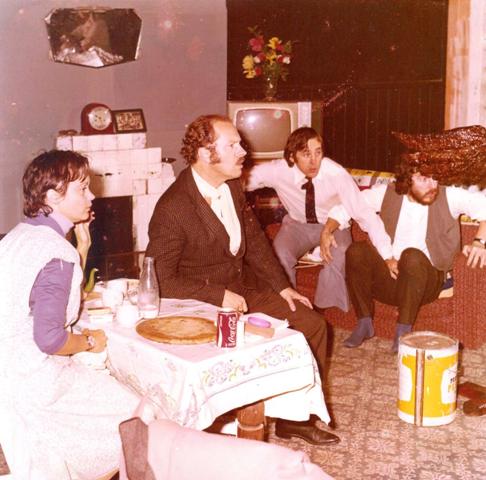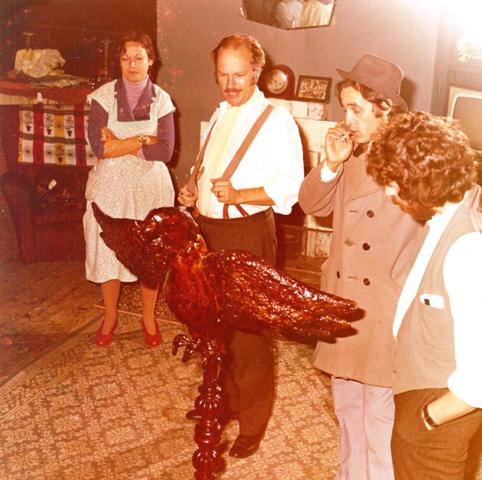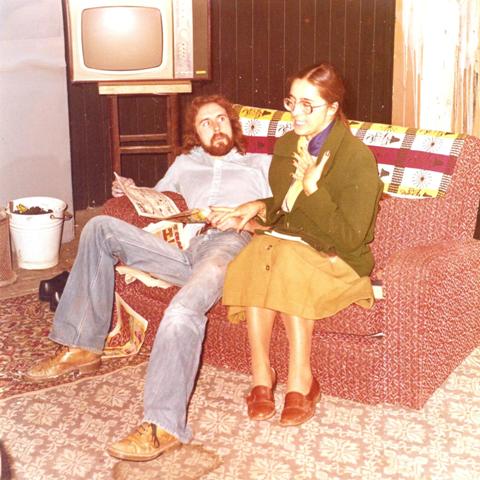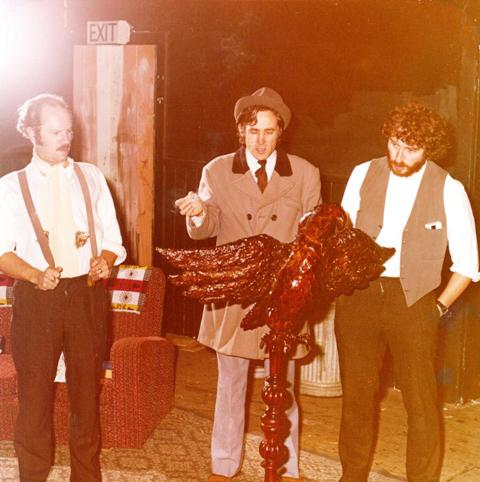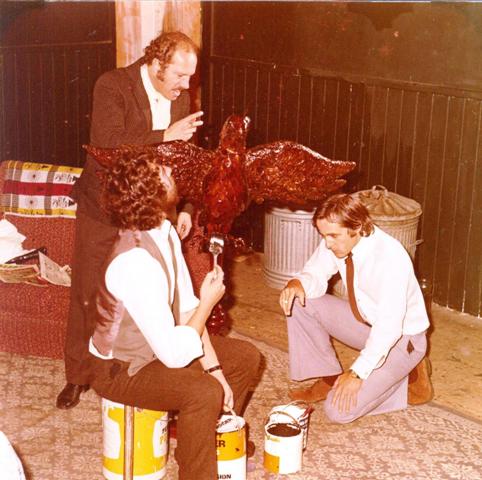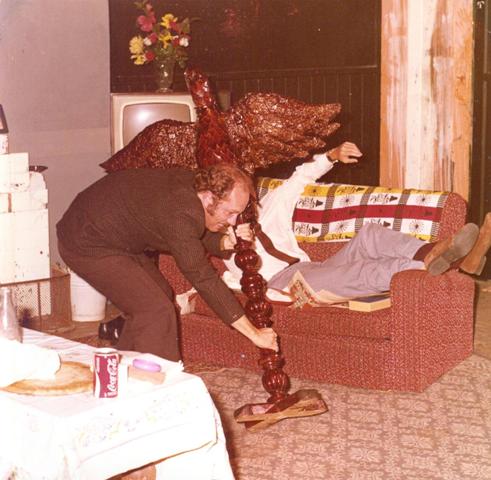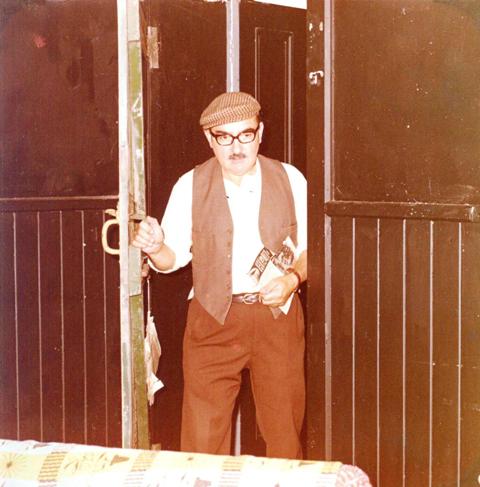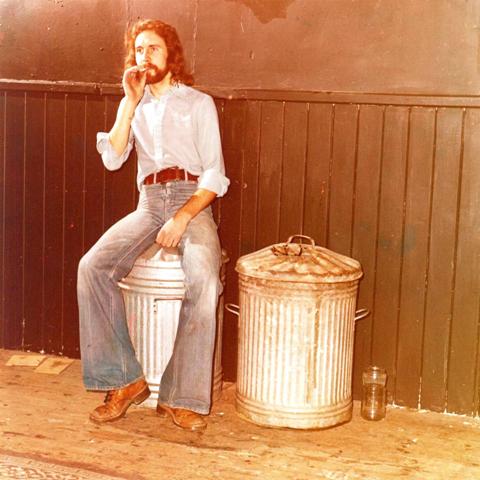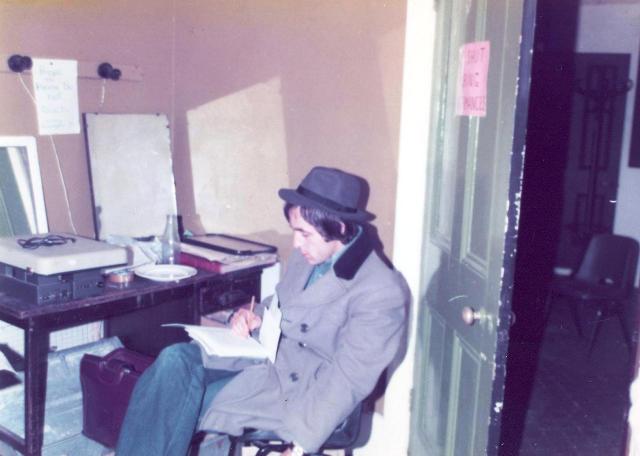The Bench Production
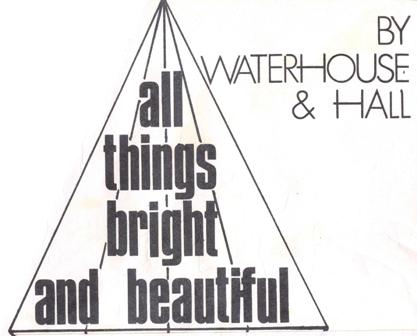
This play was staged under Bench Theatre's original company name of Theatre Union, at their theatre in West Street. It was actually the building in West Street, Havant where most of the Company's early plays were staged (including this one) which was called the Bench Theatre (after its prior use as a magistrates' court). The company's name was changed gradually by word of mouth and general usage between the years 1973 - 1977 when reviewers, and then members themselves, gradually stopped referring to Theatre Union and started calling the company of players 'Bench Theatre'. The new Company name of Bench Theatre was adopted in to all the promotional literature after they moved from the old theatre (which had been their home for nearly 7 years) in to the Old Town Hall building in East Street.
Cast
| Desmond Cooper | Peter Holding |
| Deanna Hesseltine | Jill Duncan |
| Charles Hesseltine | Peter Corrigan |
| Baloo | Jen Jones |
| Old Jakie | David Spackman |
| Queenie Hesseltine | Jill Sawyer |
| Albert Hesseltine | Ian Nelson |
| Harry Lauder Hesseltine | Spokey Wheeler |
| Douglas Dobson | Derek Cusdin |
| Voice of Rory | Brian Sweatman |
Crew
| Director | Sharon Rose |
| Stage Manager | Peter Duncan |
| Lighting | Hazel Rhymes |
| Sound | Dave Britten |
| Set Construction | Ed Sawyer |
| Costumes | Angela Mansfield |
| Front of House | Eve Moore |
| Properties | Shirley Woodmansey |
| Publicity | Peter and Ingrid Corrigan |
Director's Notes
'All Things Bright and Beautiful' is an exuberant and racy comedy which is yet a sad commentary on Twentieth century bureaucracy. The Hesseltines are living in property well overdue for demolition and they are looking forward to being rehoused in more beautiful and salutary surroundings. 'All Things Bright and Beautiful' is one of a long line of successful plays by Keith Waterhouse and Willis Hall that has included 'Billy Liar', 'Celebration', 'Say Who You Are' and Children's Day'.
Sharon Rose
Reviews
Bright and beautiful, great and small...
Two of my Yorkshire friends went with me to this area's tiniest theatre and both were impressed by the authenticity of the Yorkshire accents adopted by the, presumably, Southern actors and actresses in a play set in the North Country. The tiny theatre was the Bench Theatre, West Street Havant, ...[and it is] Theatre Union, who present the plays there. The play, 'All Things Bright and Beautiful', by Keith Waterhouse and Willis Hall, was part of the Portsmouth Community Arts Festival 76. Under the direction of Sharon Rose, the cast became convincing Yorkshire folk.
The play concerns the Hesseltine family who are living in property well overdue for demolition and are looking forward to being rehoused in better surroundings. The situation is treated as a broad comedy, but there is a pathos and wistfulness in the central character of Mrs Queenie Hesseltine (beautifully played by Jill Sawyer) as she looks forward to a new home with a garden. Chief complication arises when Harry Lauder Hesseltine (an excellent performance by Spokey Wheeler) brings home the parish church lectern which he has 'found'. Peter Holding played Desmond Cooper, boyfriend of Deana Hesseltine, a young woman played by Jill Duncan with a particularly good Yorkshire accent and manner. Peter Corrigan, with well-simulated fecklessness, played Charles Hesseltine, who its around all day studying racing form, and there was a delightful performance by Jen Jones as the cub Baloo, who comes to the Hesseltine home to inquire why the youngest Hesseltine, Rory, has not been to Cubs.
David Spackman played Old Jakie, a neighbour who visits the family to get the key to the outside communal loo, and Ian Nelson was excellent as the often exasperated Albert Hesseltine, head of the family. A commentary on 20th century bureaucracy is supplied in the character of Douglas Dobson, the man from the Housing Department. Derek Cusdin gave an excellent performance in the role of this petty bureaucrat, who gloats gleefully over the inefficiency of his department and turns nasty when the Hesseltines, deprived of their hope of a house and garden, show a sense of grievance.
In the tiny theatre, where the audience almost touches the players a most realistic kitchen-cum-living room was realized, with an exit for the 'loo door' and dustbins outside the house. Comedy aside, the play has an underlying seriousness.
